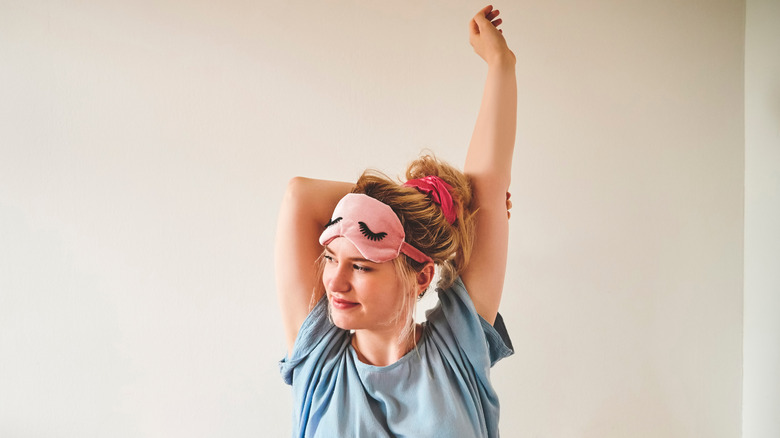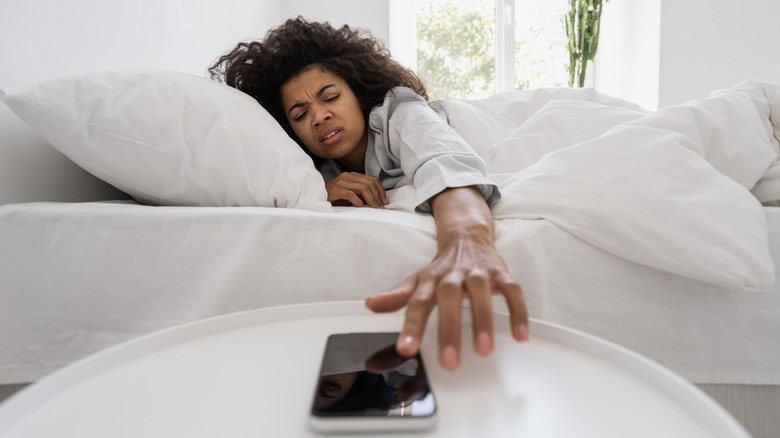The sound of your alarm — however melodic it is — is probably not something you look forward to hearing every morning. If you’re like most, you probably love those days when you can not set an alarm and go to bed with the knowledge that you can wake up the next day at any time your body decides.
What about those times, though, when your body decides to wake up on its own; but, a few minutes later, your alarm goes off? Part of you might be rethinking your alarm clock and another part could be frustrated that you didn’t get those precious extra five minutes of sleep. According to scientists, waking up right before your alarm clock has a lot to do with your body’s (and brain’s) learned behavior. If you maintain a regular sleep schedule and you’re getting your recommended 7-9 hours of sleep, it is possible that your body has adjusted to a consistent pattern and knows when it’s time to wake up.
PERIOD (PER) proteins that regulate your circadian rhythm are what are at play here. PER proteins rise and fall during the day, telling your body when it’s time to get to bed and when it’s time to wake up. They usually start rising in the morning, stay up during the day, and drop by night time — characterized by a decrease in blood pressure levels, slowed heart rate, and winding down of your brain, per The Healthy. When your sleep schedule is consistent, these sleep and wake proteins naturally adjust themselves to anticipate bedtime and wake time.
Cortisol might also be to blame

A 1999 study done by Jan Born and fellow researchers at the University of Lübeck in Germany, which was published in Nature, suggests that our body also reacts based on the time that we think we’re going to wake up the next morning. The study involved 15 participants aged between 20 and 30 who spent three nights in a sleep lab where their blood samples were collected every 15 minutes. One night, the participants were told that they would be woken up at 6 a.m. and the other two nights they were told they’d be woken up at 9 a.m. On one of the supposed 9 a.m. wake-up call days, however, the subjects were treated to a surprise wake-up at 6 a.m. instead.
The hormone adrenocorticotropin (ACTH) — which peaks before we wake up and also leads to the release of cortisol, the stress hormone — was observed in the study. On the night that the participants expected to be woken up at 6 a.m., the hormone started rising at around 4:30 a.m. On the surprise wake-up day, the hormone didn’t rise until after the subjects were awakened. The study alluded to the fact that our sleeping brain can keep track of the time when we’re meant to wake up and react accordingly. So, if you go to bed with the expectation that you are going to wake up at a particular time, you may be, in effect, setting your internal alarm clock to wake you at the time.
You’re better off listening to your body clock

If you’re thinking, “Well that’s just amazing, but I’m going to hit the snooze button anyway,” you may want to think again.
If you’re maintaining a healthy sleep schedule with the recommended hours of sleep, waking up right before your alarm goes off could mean that your body has gotten the amount of sleep it needs to go through the day ahead. Hitting snooze repeatedly is only going to mess with the fresh wakeful state you were in when you first woke up. You’re better off getting yourself out of bed and heading into your morning routine. The snooze button and sleeping through your alarm are tempting prospects, we know, but sometimes, it does more harm than good, according to sleep experts. As shared by a neurologist specializing in sleep medicine at Houston Methodist, Dr. Aarthi Ram, “The 10 more minutes of sleep you’re granting yourself over and over and over isn’t productive sleep. If anything, all of that interrupted sleep will make you feel more groggy.”
But, if you’re experiencing a consistent lack of sleep, insomnia, or other sleep disorders, or feel as though you’re waking up tired every morning despite the number of hours you get, you may want to consider seeing a specialist. Everything — from your cognitive abilities, memory, muscle repair, and even aging — depends on quality sleep, so it’s important that you prioritize it.



